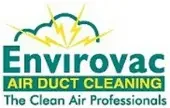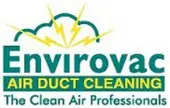Living in Gainesville, FL, means enjoying warm temperatures, lush greenery, and plenty of sunshine. However, with that comes high humidity levels, frequent allergens, and air pollutants that can make indoor living uncomfortable. Whether you’re escaping the midday heat or trying to get a restful night’s sleep, indoor air quality plays a crucial role in your comfort.
Many homeowners focus on cooling their homes with air conditioning, but temperature control is just one part of the equation. The quality of the air you breathe indoors can significantly impact your comfort, health, and overall well-being. This is where air purifiers come in, offering an effective solution to combat airborne contaminants, reduce humidity-related discomfort, and create a cleaner, fresher indoor environment.
In this blog, we’ll explore how air purifiers can enhance indoor comfort during Gainesville’s hot and humid months, why they are essential for a healthy home, and how they work alongside your HVAC system to improve air quality.
Understanding Indoor Air Quality Challenges in Gainesville, FL
Gainesville’s climate presents unique indoor air quality (IAQ) challenges that can make home environments feel stuffy, damp, and even unhealthy. Below are some common issues homeowners face:
1. High Humidity and Mold Growth
- Gainesville experiences an average relative humidity of around 74% year-round, with summer months often exceeding 80%.
- High humidity levels create a breeding ground for mold and mildew, which can lead to musty odors and respiratory issues.
- Airborne mold spores can exacerbate allergies and asthma, affecting indoor air quality.
2. Increased Pollen and Allergens
- Gainesville is home to abundant plant life, making seasonal allergies a common issue.
- Tree pollen levels peak in the spring, while grass and weed pollen persist through the summer and fall.
- Even with closed windows, pollen can enter homes through HVAC systems, on clothing, or through small air leaks.
3. Dust, Pet Dander, and Indoor Pollutants
- Homes naturally accumulate dust and dander, particularly in pet-friendly households.
- Indoor pollutants like VOCs (volatile organic compounds) from cleaning products, paints, and furniture can linger in the air, reducing air quality.
- Poor ventilation can trap contaminants inside, leading to stale air and unpleasant odors.
4. Increased Risk of Airborne Bacteria and Viruses
- Stagnant indoor air allows bacteria and viruses to circulate, especially in tightly sealed homes.
- According to the EPA, indoor air can be two to five times more polluted than outdoor air, increasing exposure to airborne contaminants.
Now that we understand the challenges, let’s dive into how air purifiers can help combat these issues and improve indoor comfort.
How Air Purifiers Work to Improve Indoor Comfort
Air purifiers are designed to remove airborne contaminants, improve air circulation, and enhance overall indoor air quality. They work by using various filtration and purification technologies to capture or neutralize pollutants.
1. HEPA Filtration: The Gold Standard for Allergen Removal
- High-Efficiency Particulate Air (HEPA) filters can trap 99.97% of particles as small as 0.3 microns, including pollen, dust mites, and pet dander.
- This level of filtration significantly reduces allergy symptoms and helps maintain a cleaner indoor environment.
- Studies show that using HEPA filters can reduce airborne allergens by up to 50% in a home setting.
2. Activated Carbon Filters: Eliminating Odors and VOCs
- Activated carbon filters absorb volatile organic compounds (VOCs), smoke, and household odors.
- This is particularly useful for homes with pets, cooking smells, or exposure to chemicals from cleaning products.
- The American Lung Association highlights activated carbon filtration as an effective method for reducing airborne chemical pollutants.
3. UV-C Light Technology: Neutralizing Bacteria and Viruses
- Ultraviolet germicidal irradiation (UVGI) destroys the DNA of bacteria, viruses, and mold spores, preventing them from reproducing.
- Studies show that UV-C light can eliminate up to 99.9% of airborne pathogens, improving air sanitation.
- When integrated into an HVAC system, UV lights can help prevent microbial buildup inside air ducts.
4. Ionization and Electrostatic Purification
- Some air purifiers use ionization technology, which releases negative ions to attract and neutralize airborne particles.
- Electrostatic precipitators use charged plates to capture fine pollutants before they circulate through the home.
- These technologies work well for reducing smoke, fine dust, and certain bacteria.
By incorporating one or more of these filtration methods, air purifiers can significantly enhance indoor air quality and overall home comfort.
Benefits of Using an Air Purifier in Your Gainesville Home
Installing an air purifier in your home provides several key benefits, making it a worthwhile investment for improving indoor comfort and health.
1. Reduced Allergy and Asthma Symptoms
- Air purifiers remove common allergens like pollen, dust, and pet dander, reducing sneezing, congestion, and itchy eyes.
- The Asthma and Allergy Foundation of America (AAFA) recommends HEPA filtration for households with allergy sufferers.
2. Improved Indoor Air Quality and Health
- By filtering out airborne bacteria, viruses, and mold spores, air purifiers create a healthier living environment.
- Research from the Centers for Disease Control (CDC) suggests that improving indoor air circulation can help reduce the spread of airborne illnesses.
3. Elimination of Musty Odors and VOCs
- Air purifiers help eliminate odors caused by cooking, pets, and mold, keeping indoor air fresh.
- They also remove VOCs, which can contribute to headaches, dizziness, and long-term respiratory issues.
4. Enhanced HVAC Efficiency and Longevity
- Air purifiers work alongside HVAC systems by keeping air filters and ductwork cleaner.
- This reduces strain on the system, leading to lower energy costs and fewer maintenance issues.
5. Balanced Humidity Levels for Greater Comfort
- Certain air purifiers with built-in dehumidification features help reduce excess moisture in the air.
- Maintaining indoor humidity levels between 40-60% can prevent mold growth and improve overall comfort.
Choosing the Right Air Purifier for Your Home
Not all air purifiers are created equal. When selecting an air purifier, consider the following factors:
1. Room Size and Coverage
- Choose an air purifier rated for the square footage of your space.
- Whole-home air purifiers integrated with HVAC systems offer the most comprehensive coverage.
2. Type of Filtration Technology
- If allergens are a concern, opt for HEPA filtration.
- For odors and chemicals, activated carbon filters are best.
- If microbial contamination is an issue, UV-C light purification can help.
3. Maintenance and Filter Replacement
- Look for air purifiers with easy-to-replace filters and long-lasting components.
- Regular maintenance ensures optimal performance and efficiency.
For personalized recommendations, working with a professional HVAC service provider like Envirovac Air Duct Cleaning can help you find the best air purifier for your needs.
For Indoor Air Quality Services in Gainesville, FL, Contact Envirovac Air Duct Cleaning Today
Air purifiers play a vital role in improving indoor comfort, especially in Gainesville’s warm and humid climate. By removing airborne allergens, reducing humidity-related discomfort, and enhancing overall air quality, they create a healthier and more pleasant home environment.
If you’re considering an air purifier for your home, Envirovac Air Duct Cleaning can help. Our team specializes in indoor air quality solutions, including air purifier installation, duct cleaning, and HVAC maintenance to ensure your home stays comfortable year-round.
Contact Envirovac Air Duct Cleaning today to learn more about our services and how we can improve the air you breathe. Give us a call today to schedule a consultation!
 Skip to content
Skip to content



